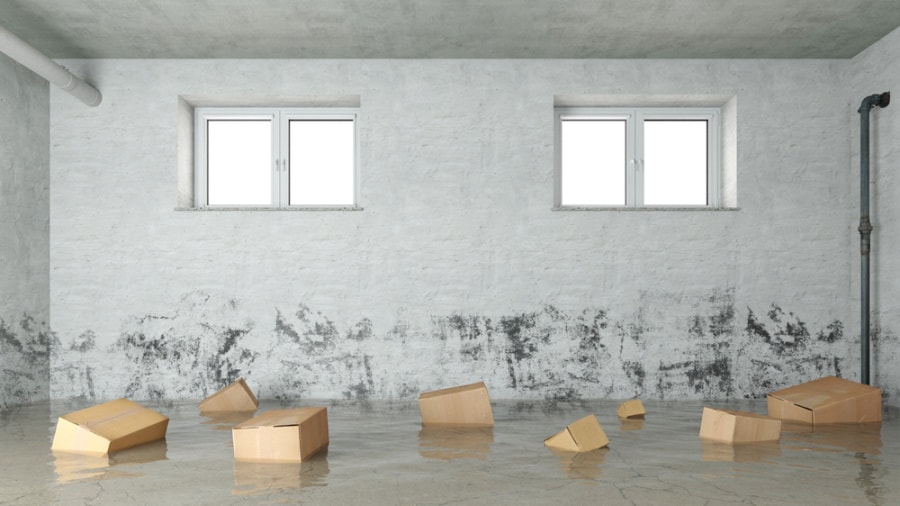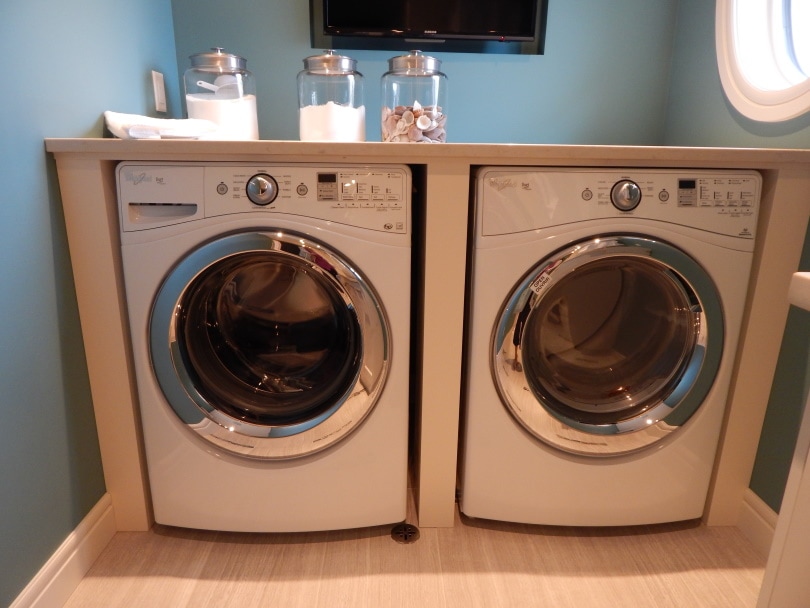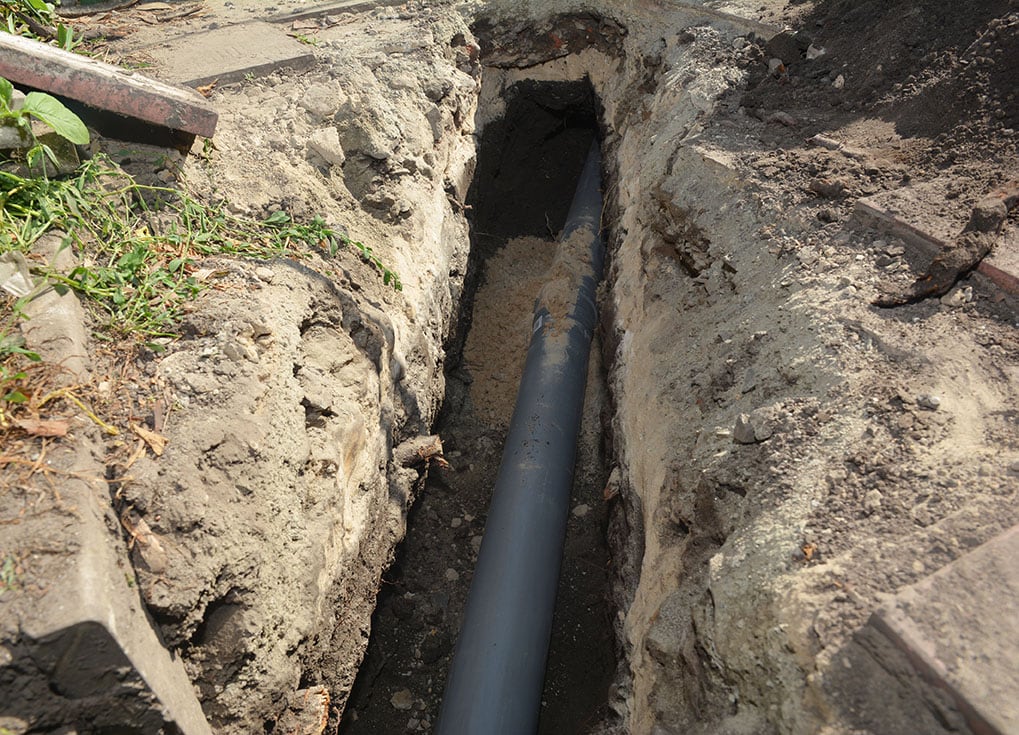Why Does My Basement Smell Like Sewer? 6 Possible Reasons
-
Pete Ortiz
- Last updated:

It can be quite alarming to walk into your basement and get hit with the smell of a sewer. Immediately you wonder, “What is that smell?” and “Where is it coming from”? In many cases, it can be a quick and painless fix.
There are times, however, when the problem is serious and requires a professional. Before you call for help, check these common issues. You may be able to resolve the problem without incurring a hefty repair bill.
The 6 Reasons on Why Your Basement Smells Like Sewer
1. A Water Trap That Has Dried Out

Many basements have unused drains. Sinks, laundry tubs, and floor drains contain pipes that hold a small amount of water. They are called S or U-shaped pipes. If the unit is not used for a while, the water in the pipe can dry up. The result is a stinky drain.
Pouring a gallon of water into the smelly drain will refill the U or S-pipe and rid the drain of the odor. We also suggest you open the windows to air out the room.
2. Toilet Trap
Toilets used regularly have water flow in and out of the trap. If you live in a home with a basement that does not get a lot of use, the toilet can dry out. The water in the trap of a toilet can evaporate. Sewer gas can come up from the trap and cause your basement to smell like rotten eggs.
It is recommended that you flush the toilet regularly to prevent the trap from drying out.
3. Toilet Wax-Ring Seal

The toilet flange is the circular pipe fitting that connects the toilet to the drain pipe and floor. A wax ring seal is installed between the toilet and the floor. If it is not installed properly or has become loose, the toilet will be unstable and allow gas to enter the room. The awful odor can also come from a dried-out wax seal.
The problem can be resolved by replacing the dried-out or defective wax ring. You can purchase one at your local hardware store. Wax rings are universal but come in different sizes, however. Be sure to measure your toilet to determine the correct size.
4. Cleanout Plug is Missing
There is a trap underneath the floor drain in your basement. There is a plug located in the section of the drain that bypasses the water trap. The plug prevents sewer gas from entering your home. If, after cleaning the drain, the plug is not replaced properly, the odor will come up from the drain.
Check the plug to be sure it is inserted correctly. If the plug is missing, you can purchase one at your local hardware store. Be sure to purchase the proper size for your drain.
5. Ejector Pit

An ejector pit or sump basin houses the pump that carries wastewater from the basement laundry room and bathroom to the sewer line. The pit is vented and sealed. If the seals are damaged, it will allow sewer gas to enter the home and cause a sewer smell.
If the issue is not with the vent or seal, the problem may be with the actual element. In that case, we recommend you get the advice of a professional.
6. Damage to Sewer Line
Damage to a nearby sewer line can make your home smell like a sewer. If the damage is close by, the sewer water can leak into the ground and eventually end up in the sump pit of your home.
It is recommended that you call a professional to test for a leak. If a leak is found, they will advise you of the next step and give you an estimate for the necessary repairs.
Tips for Prevention
In some cases, things happen that are beyond our control. Broken pipes and sewer lines can cause problems for homeowners. Here are some tips, however, to keep the sewer smells out of your home.
- Keep water in the traps. Traps are in sinks, toilets, floor drains, and walls. Knowing where they are is the first step to prevention. Any traps that are rarely used can dry out. To slow the evaporation of the water in the traps, add some vegetable oil.
- Keep drains clean. Drains are prone to build-up of debris, hair clogs, and foreign objects. Regular cleaning of the drains with a wire hanger or small drain snake will help to prevent build-up and remove any objects or debris that may cause a problem. Once the drain has been cleaned, flush it with four to five gallons of hot tap water. Do not use boiling water.
- Clear blocked drains. If you have a blocked drain that you cannot clear yourself, you may need to call a professional.

Is Sewer Gas Dangerous?
Sewer gas can include ammonia, methane and hydrogen sulfide. The rotten egg smell comes from the hydrogen sulfide. Exposure to high concentrations of sewer gas is rare in a home. Exposure to high concentrations of the gas is more common in industrial facilities.
Symptoms from over exposure to sewer gas include dizziness, headache, vomiting, nausea, poisoning, asphyxiation, and memory loss.
As a precaution, if you smell sewer gas in your home, open some windows immediately.
Conclusion
In many cases, the smell of sewer gas is something that can be resolved easily. If the problem is not an easy fix, seek the advice of a professional. As always, if you are experiencing any of the symptoms listed above, seek medical attention immediately.
- See also: What Is a Slab Basement? Alternatives, Pros, Cons, & FAQ
Featured Image Credit: Pixabay
Contents


